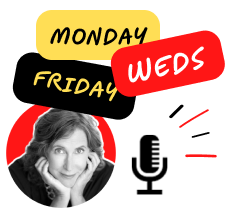So in my life as an aspiring writer, this past summer I took a writing workshop with the incredible Nancy Aronie. She’s an old hippie. Intelligent, funny, quirky, and she has an incredible life story. I’m reading her book, ‘Memoir as Medicine’. It’s excellent. The subtitle is ‘The Healing Power of Writing Your Messy and Perfect Unruly but Gorgeously Yours Life Story”. Now I’m not writing a memoir, at least I don’t think I am, but her book isn’t about how to write a memoir. It’s about storytelling. How to shape your story, how to use your language, context, placement, rewriting your stories. I love it. For example, she tells how she started her book, sharing the three different stories she crafted for the beginning of the book. They were all super well written, but they didn’t work. She goes on to share how she started her book in the final draft. Funny enough, it’s a memoir she wrote but never actually published. I’m telling you, she’s a real card and I just love her.
The story I want to tell is that I was in an intensive workshop for a week with about 15 of us. We’d start each day with a writing prompt, have quiet, and then we would go around and read what we wrote. I was in a room of perfect strangers. I knew absolutely no one. On the very first day, the first person starts reading and I’m so entirely blown away by what she wrote that I didn’t get to listen to the amazing stories that were shared thereafter because I was too busy trying to make mine perfect. I was all up in my head about my writing skills. But that was day one, and by the end of the week, I had a keen appreciation for story and language and context and what we take away from stories. How we write them, how we reshape them, how we learn from them. It was incredible.
But here’s what happened. There were all kinds of stories about real life stuff – alcoholism, mental health issues, abandonment, suicide, sexual abuse – and I started to feel a little bit ashamed that what I was writing about was all this Pollyanna, sugary stuff about my mother and father and sister. Of course, my stories were coming from a place of not only having had a beautiful family life as a young kid, but loss and the pain I felt about loss. And then something happened that really changed my thinking. One of the women sitting next to me reached over with tears in her eyes and said “Constance, I just love your story. Thank you so much for sharing it.” Now this is a woman who had shared some difficult stuff – and she went on to say “your stories give me hope that my children will one day have loving things to say about me”. Sorry I’m crying, but it was very emotional because here I was feeling that I needed to apologize for my story. I was comparing myself and my stories to other people, then I got that beautiful reminder that our stories are all important. We don’t need to apologize for the good things or the bad things. We don’t get to decide what lands for other people in our storytelling. We don’t need to apologize for our success, our happy marriage, or a beautiful vacation – we may be a North star for someone. Just like we don’t need to apologize when we tell the stories about the bad things that happened, Storytelling is a way to make meaning and to make sense of what’s happened to us. It’s not the telling of what happened, it’s how we shape the meaning and the takeaway.
I think I’m telling you all this because I speak about what we tell other people. The language we use, including in a job interview, about our lives, about our experiences. Deliberate language shapes the way we see things. It can also shape a first impression. It reveals what’s important to us. And we do get to rewrite and reshape and rethink the way we tell our stories, the way we share our experiences, including our work experiences. It’s not what happened to you or what you did, it’s what you do with it that matters.
I want to end with this quote that begins chapter two of Memoir as Medicine. It’s from Chapter Two – Why Write. It’s a quote by Joan Didion. “I write entirely to find out what I’m thinking, what I’m looking at, what I see and what it means, what I want and what I fear.” And then Nancy writes below it “me, too”. She is so funny. So I’ll just end with that. I think it’s important that we catch ourselves, that we pay attention to the stories we’re telling, and that we remember to reshape them and rewrite them.
What stories do you want to rewrite? What are the stories you’re telling yourself that perhaps you need to rethink? It’s good to catch yourself, and that’s a note to self, believe me. It’s so easy to go into the woe is me. It’s not what happens to us, that’s for sure. It’s what we make of it and what we take away from it.
I’m going to end. That’s all for now. Until next time, from my heart to yours.

















